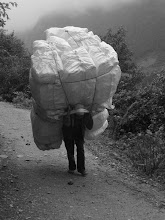1-To demand or request for something to be done
The Opposition party called for the minister's resignation after the scandal broke.
2-To telephone for something
I'll call for a cab right away.
Do you want me to call for a pizza?
3-To arrive and collect someone to take them out
I'll call for you at seven, so be ready because the film starts at half past
4-To need or require a particular thing or quality
An emergency like this calls for some pretty drastic action.
You're getting engaged? This calls for a celebration!
5-To go to collect something
The courier called for your parcel, but I told him it wasn't ready yet.
6- To suggest as likely: to suggest that something is likely to happen ( refers to weather forecasts )
The weathercasters are calling for thunderstorms in the late afternoon.
Notes: Transitive verb. All usages are inseparable. Synonyms: need, require, justify, necessitate, cry out for, be in need of, exact (v.), order, demand, claim, clamor, request, ask
| |||||
Something that causes someone to be very frightened
The ghost story made our hair stand on end.
The thought of jumping out of an airplane makes my hair stand on end.
Note: This is first found in Shakespeare's Hamlet, 1602:
"I could a tale unfold, whose lightest word would harrow up thy soul, freeze thy young blood, make thy two eyes, like stars, start from their spheres, thy knotted and combined locks to part and each particular hair to stand an end, like quills upon the fretful porpentine."
Shakespeare conjured up many images in his works; few though have been more vivid than the mental picture of a fretful porcupine. The allusion of makes your hair stand on end is to the actual sensation of hairs, especially those on the neck, standing upright when the skin contracts due to cold or to fear. This is otherwise known as 'goose-flesh' and the condition is, or rather was, known by the entirely splendid word horripilation. This was defined by Thomas Blount in his equally splendidly named book Glossographia, or a dictionary interpreting such hard words as are now used, 1656:"Horripilation, the standing up of the hair for fear... a sudden quaking, shuddering or shivering".



No comments:
Post a Comment